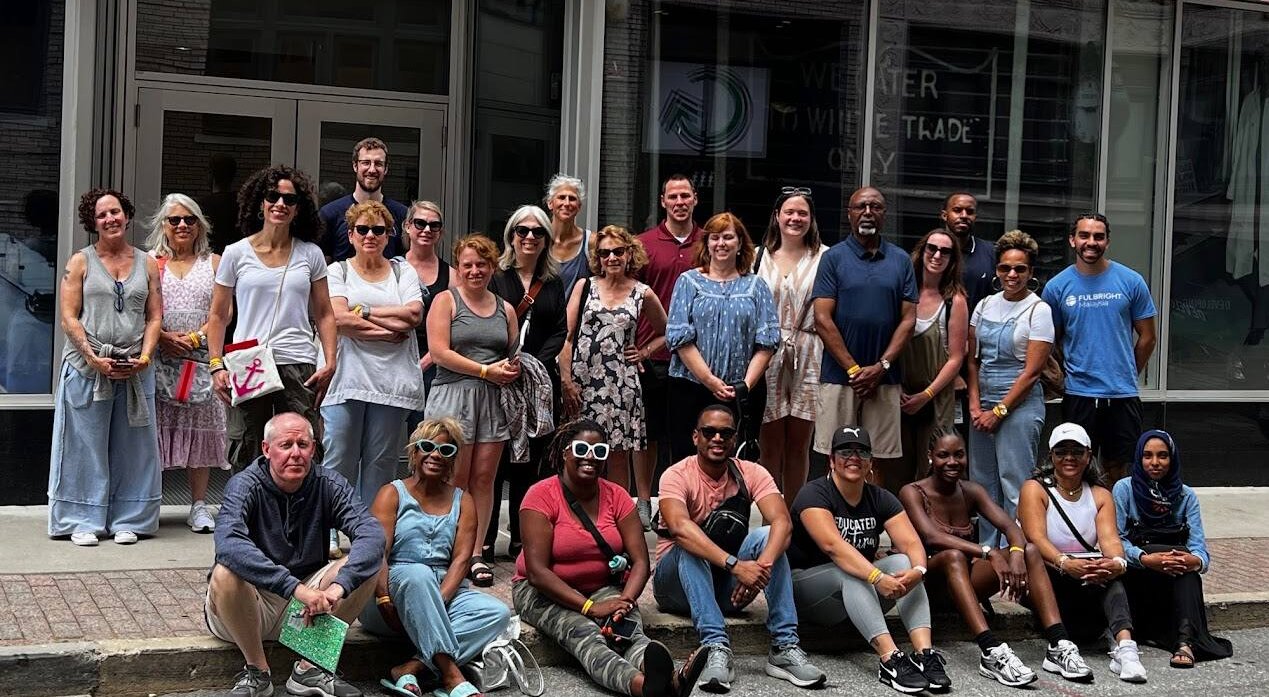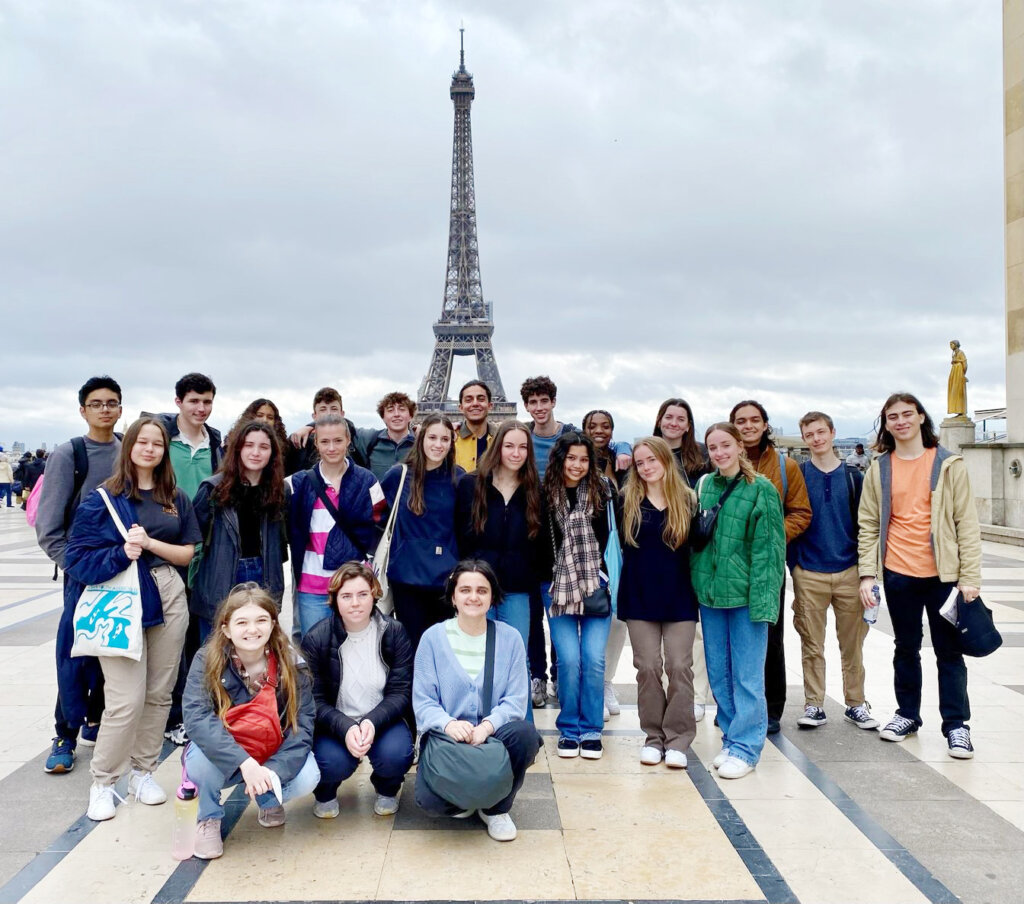Faculty and Staff Experience Civil Rights Trip

At the end of June, 27 faculty and staff from three Baltimore-area partner schools embarked on the Civil Rights Trip — an experience normally reserved for students and a handful of chaperones.
Teachers, staff, and administrators from Park School, Baltimore City College, and City Neighbors Middle and High Schools boarded a 6 a.m. bus at Park School — with a surprise farewell from Park’s Head of School Dan Paradis — and began their journey to the Deep South, visiting sites and meeting people important to the Civil Rights Movement, just as our students do each winter and spring. (Our student Civil Rights Trips recently expanded to twice yearly due to increased interest.)
While the group was traveling, they collectively drafted a letter in response to a recent article published in the Baltimore Sun about the Harford County Public School Board denying a new Advanced Placement African American Studies course for the next school year. The School Board had expressed concerns that the course content was “divisive” and too political.
The letter was published as an Op-Ed in the Sun on July 4. Although signed by Traci Wright, Upper School Principal and Co-founder of the Civil Rights Trip, the letter was a collective effort, with many trip members contributing.
Harford school board is erasing Black history for fear of division
By Traci Wright
On a bus traveling through the Deep South, a group of 27 Baltimore County and City educators on a trip to study the Civil Rights Movement and its legacy read with dismay that the Harford County school board has decided not to offer Advanced Placement African American Studies, dismissing the courses as “divisive,” “political,” and “questionable.”
We are educators with a multitude of experiences and perspectives. We teach at public schools, independent schools and charter schools. We all share the conviction that by making this decision, the school board has flouted its most basic responsibility: to provide for the education of every student.
The AP African American Studies curriculum was developed through the partnership of the Smithsonian Institute and the College Board. It is based largely on primary sources. We cannot imagine what calculation would bring the school board to conclude that such credentials and methods are questionable. We certainly have not seen this level of scrutiny applied to other AP curricula.
We suspect that it is the board members’ fear of divisiveness that motivated their decision. African American Studies is, indeed, a study of division, as division is woven into the fabric of American history itself. It is a fact of history that the slave trade divided Black families. It is a fact of history that slavery divided an entire nation, leading to the Civil War. It is a fact of history that the racism of “separate but equal” divided Americans.
But African American Studies is also concerned with unity, because the fight for unity is equally at the heart of American history. It is a fact of history that abolitionists sought unity when they envisioned a society in which all people were free. It is a fact of history that people of all races fought for unity when they demanded integration.
In light of this history, we wonder what type of divisiveness concerns the school board, and what type of unity they seek for their community. As Martin Luther King Jr. wrote to those who accused him of bringing divisiveness to Alabama, “We … are not the creators of tension. We merely bring to the surface the hidden tension that is already alive. We bring it out in the open where it can be seen and dealt with.” We assert that the goal of education is not to uphold false unity that thrives on suppressing our history but to enable true unity that thrives in the light.
As for the claim that the content of the course is too “political,” we wonder what version of AP African American Studies would be deemed appropriately political. Would the Civil Rights Movement, which was met with bitter political resistance, fit the bill? Should we leave out integration efforts, which were blocked by politicians on every level? Or is it only the injustices of today that must not be spoken of in our classrooms?
As for the wish to see our country’s successes highlighted, we are heartened to see that the unbelievable resilience, courageous activism, creative genius, athletic accomplishments, cultural contributions and scientific breakthroughs of the African-American community are all honored in the AP African American Studies curriculum.
On this journey through the Deep South, we have found that deepening our understanding of America’s past has been more empowering and enlightening than we could have imagined. We have come far, but not far enough. We are ready to come back to our classrooms and share what we have learned. We only wish all students in Maryland and around the country had access to the same opportunity.
Traci Wright ([email protected]) is the principal of the Upper School at the Park School of Baltimore and co-founder of the school’s Civil Rights Trip.
To learn more about the Civil Rights Trip and to read trip blogs, visit here.
Back to The Latest






